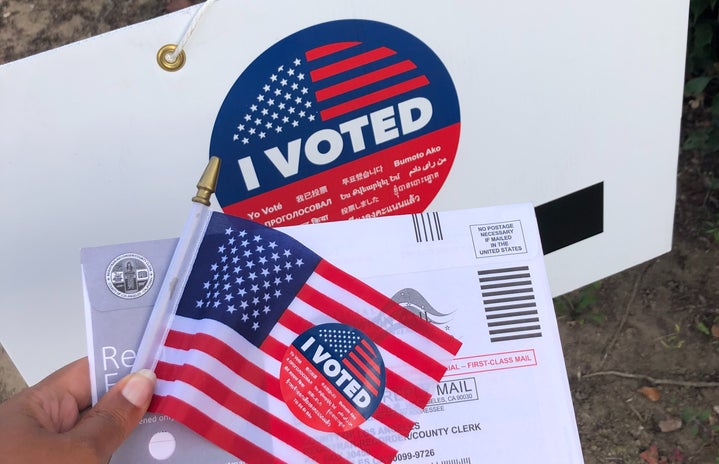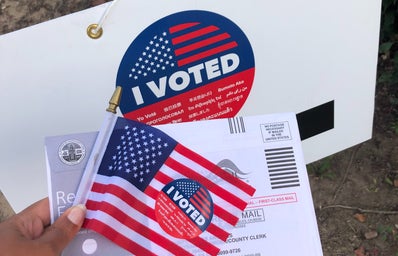It’s that time of year again! The weather is cooling down, leaves are changing colors, everyone you know is going apple-picking and Taylor Swift is coming out with a new album. What is the name for this wonderful time of year? Election season. It’s a beautiful time of year for campaign ads, yard signs and watching the people in your lives who keep up with politics slowly descend into stress-induced comas.
The midterm elections are coming up this Nov. 8. So, what exactly does that mean? Midterm elections occur every two years and the entirety of the House of Representatives, one-third of the Senate and many local offices are up for election. While a midterm election is separate from the Presidential election, it is just as, if not more, important to vote. It is easily argued that your local and state government actually have a larger effect on your day-to-day lives than the President of the United States. This year, the midterm elections are more important than ever. Issues such as abortion, protections for marriage equality, student loan forgiveness and more are on the ballot.
As college students, voting can be a little complicated. You can either choose to vote in the state where you attend school or in your home state if you live out of state.
To register to vote in the state in which you attend school, all you need is a permanent address. This can be an apartment, house or even a dorm building. If you are voting out of state, you have a few options. Either you can travel back to your home state to cast your vote in person or you can request an absentee ballot. If you’re voting in person, election day can feel overwhelming, so a breakdown of what to expect on election day can be found here.
An absentee ballot is the fancier name for voting by mail. In order to get an absentee ballot you either have to request one, or depending on the state you live in, you may automatically be sent one. Once you fill out the ballot, you can either mail back the ballot or drop it off at a designated polling location. A breakdown of how to request and receive an absentee ballot can be found here.
Before an absentee ballot can be requested, you must be registered to vote. In most cases, registering to vote is simple and will only take a few minutes. Step by step instructions can be found here.
It is also important to know and understand what will be on your ballot. A sample of your state ballot can be found here.
You can argue all you want that voting doesn’t matter or that your vote won’t change anything, but the fact of the matter is, this isn’t true. Is your one vote going to declare victory for a candidate? Probably not. But if a hundred or a thousand people choose not to vote because they think their vote doesn’t matter, that is enough votes to change the outcome of an election. This isn’t even considering the privilege it is to be able to vote. For you to disregard voting just because you don’t think it matters is a slap in the face to those who fought for you to have this right.
If you are not a white, landowning male over the age of 21, the original Constitution did not grant you the right to vote. Technically the 14th and 15th Amendments passed in 1870 gave people of color the right to vote, but obstacles such as literacy tests, poll taxes, intimidation and the Grandfather Clause, to name a few, were put in place to discourage voter turnout. The Voting Rights Act of 1965 attempted to solve these problems, but they still have not been completely eradicated from politics. White women were not granted the right to vote until the 19th Amendment in 1920. What you might not know is that the voting age was only changed to 18 in 1971 after the 26th Amendment was ratified.
It is my personal opinion that if you have the means to vote and choose not to, then you do not get to complain about anything for the next two years as you did not even try to change it. When you vote, you have the power to change it. Please exercise that power this November.


